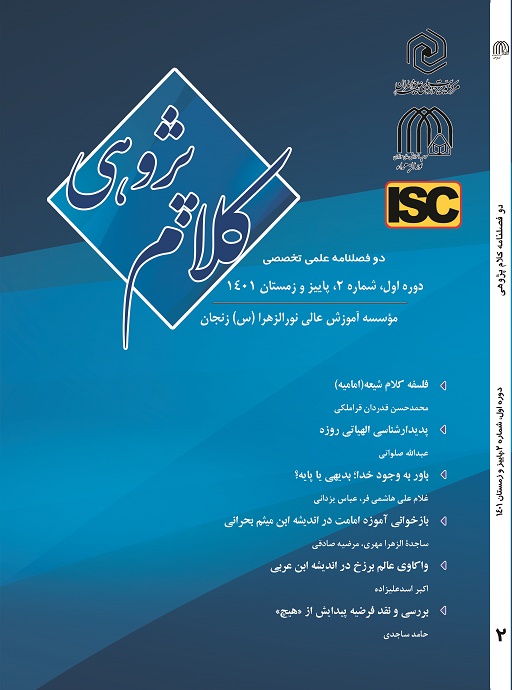نوع مقاله : مقاله پژوهشی
نویسنده
پژوهشگاه فرهنگ و اندیشه اسلامی
چکیده
پیدایش از «هیچ» فرضیهای است که برخی فیزیکدانان مانند تریون و ویلنکین در پاسخ به چرایی پیدایش اصل کیهان مطرح کردهاند. کسانی مانند هاوکینگ و کراوس با صراحت بیشتری ادعا میکنند این فرضیه ما را از فرض یک خدای آفریننده بینیاز میکند. از آنجا که این سخن یک ادعای فلسفی مهم است پرداختن به آن هم از منظر عقلی و تحلیلی و هم از منظر فیزیکی ضروری است. در این مقاله با تقسیم این ادعا به سه سطح، به شیوهای نوین نشان خواهیم داد که هیچ یک از تقریرهای این فرضیه تبیین کاملی از پیدایش کیهان ارائه نمیدهد و چراهای بنیادینی را بی پاسخ میگذارد. تقریرهای مختلف این فرضیه گاه دچار ناسازگاری درونی است و در مفاهیمی چون نیستی دچار خلط شده است و گاه با برخی اصول پذیرفته شده در کیهانشناسی مانند اصل میانگی در تعارض بوده و فاقد مزیتهای تبیینی است که در تبیین خداباورانه وجود دارد.
کلیدواژهها
عنوان مقاله [English]
Analysis and criticism of the hypothesis of creation from "nothing"
نویسنده [English]
- hamed sajedi
پژوهشگاه فرهنگ و اندیشه اسلامی
چکیده [English]
: Creation from nothing is a hypothesis suggested by some physicists such as Tryon and Vilenkin in response to why the cosmos exist. People like Hawking and Krauss claimed more clearly that this hypothesis will make us free from the hypothesis of god as a creator. Since This statement is an important philosophical claim, it is necessary to analyze and deal with it both philosophical and from physics point of view. In this article, by dividing this claim into three levels, we will show in a new form and content that none of this hypothesis versions provide a complete explanation of the origin of the universe and they leave the fundamental questions unanswered. The various interpretations of this hypothesis sometimes have internal inconsistencies and are mistaken about concepts such as “nothingness”, sometimes they are in conflict with some principles accepted in cosmology, such as the principle of Mediocrity, and lack the explanatory advantages that the theistic explanation contains.
کلیدواژهها [English]
- Quantum vacuum
- quantum tunneling
- mediumship principle
- coincidence. Submitted:

